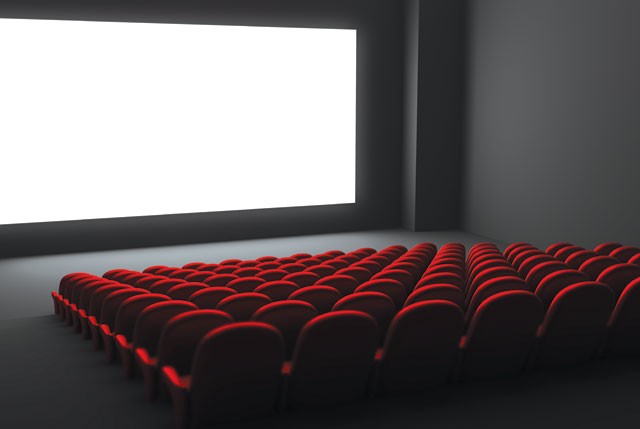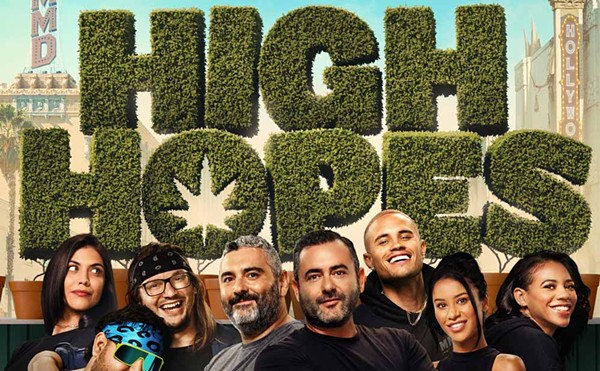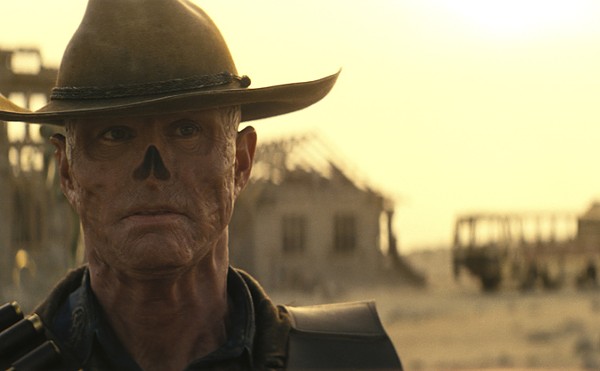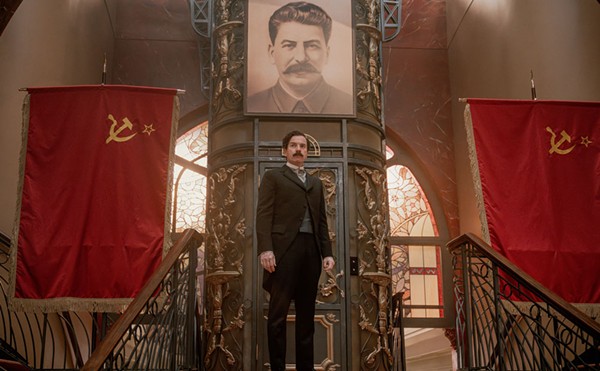There's always been a degree of mythmaking when it comes to just how far Japan is ahead of us, technologically and culturally speaking. When I was a kid, eagerly awaiting the release of Super Mario Brothers 3, word around the schoolyard was that kids in Tokyo were already playing Super Mario Brothers 5. Of course, they were ahead of us, even if it wasn't quite that far in front.
It was, then, with a nervous stomach that I read the recent headlines from Tokyo about a series of cinema closures planned within the next six to eight months – theaters like the Shine Patosu, an eclectic three-screen theater located in an underground passage in the Ginza district that plays a mix of new and repertory films, and the Shinema Pink Theater, a long-running "pink" (soft-core porn) specialty cinema located in Asakusa, Tokyo. These theaters faced the same problems stateside cinemas face: the expensive switch to digital projection, stout competition from television dramas and video games that are suddenly bursting with the level of quality that used to be reserved for their big-screen brothers and, perhaps most alarmingly, the idea that maybe kids just don't care about movies that much anymore.
Could American theaters be next on the chopping block?
It's been said for years that film is a young person's game, and since the 1950s, youth-oriented films reinvigorated national interest in the art form after fallow periods. Sci-fi in the '50s, New Wave in the '60s, New Hollywood in the '70s – these were all basically youth movements. "If anyone else is interested, cool, but we don't care," was the predominant sentiment, one that seems to be dying off according to Mark Roberts, a freelance film critic living in Tokyo.
"My feeling from frequenting theaters, especially [repertory] theaters here, is that it's not a big part of their lives," Roberts says. The threat in Japan is that if you take in any more than a handful of films a year, you could be branded otaku (geek) – a social death sentence. In an article last month, Neal Gabler of the Los Angeles Times came to the same conclusion about young Americans, as well. Despite a loud and vocal opposition on blogs and comment sections in reaction to the article, American teen culture in 2012 seems to value disposable entertainment more than ever, a troubling trend that could have a lasting impact.
"I think it is fair to say that cinema, as it is traditionally defined, or at the very least a certain type of cinema, is coming to an end," says Jasper Sharp, editor of the Japanese film website Midnight Eye. He says in a continuously connected world, film doesn't offer two hours to decompress and forget about troubles or homework; instead, it's two hours during which one might miss out on something new happening in the world, a fatal liability to some.
It's not just Tokyo, though. CinemaTreasures.org's mapping feature shows an alarming amount of red pins for closed theaters around the country. AMC's Harvard Square is recently deceased according to the Boston Globe, the first time bustling Church Street has been without a cinema since 1925. Toronto Underground Cinema, whose owner, Alex Woodside, likened owning a theater to being in an abusive relationship in the Toronto Star, is shuttering in September. Even in New York, the legendary one-screen Ziegfeld Theater, host of so many upscale movie premiers over the years, finds itself closing during slow periods, according to the NY Post, though owners Cablevision insist the theater will remain open for now. Likely none of them will have a guardian angel to swoop in and save them, as Quentin Tarantino did when Los Angeles' New Beverly Cinema was faced with the prospect of closing. Orlando hasn't been immune, nor has it found any guardian angels. Notably, the 2007 closing of both the Park 11 and the Carmike University 8 have been deeply felt. The Park 11 spent its twilight as a second-run theater, but was one of the most storied theaters in the country before its demise; it was originally opened in the '60s by Walt Disney to show his plans for Disney World. The University 8 used to host this writer on many hot, boring nights for $5 late shows.
But now ticket and concession prices are higher than they've ever been, and the blight of cell phones and talkers, dim screens, and, sadly, the new scourge of violence gives me pause … and bouts of nostalgia. I think of the theater where I went on my first date (for the landmark comedy gem City Slickers II – no wonder it didn't go anywhere). It still exists, though it's now a cookie-cutter Regal chain.
Sitting at home with Netflix or video on demand is convenient, but builds no memories and comes at the cost of atmosphere. On the other hand, most theaters lack anything close to atmosphere now, anyway. Thanks to digital movie cameras and, later, digital projection, there are no more scratches or cue dots, or the charm of reel changes. It's the whir I miss most of all, though; the sound of the print riding through the roller coaster of the projector, claw pulling down on sprockets, unspooling a new world to get lost in. But Netflix comes with a pause button, and that's a dangerous thing.
The upside is that our little, one-screen oasis in the desert, Enzian Theater, is in solid shape and "not in any danger of closing" according to executive director, Elizabeth Tiedtke. But that's likely all that can be hoped for right now in a greater metropolitan area that claims only 2.2 million people. The Landmarks and Drafthouses are likely not coming to Orlando, and the Regals and AMCs aren't about to expand their art-house selections, especially as smaller titles become increasingly available on VOD prior to theatrical release.
But Enzian has already made the jump to digital (while retaining their 35mm capability), and has hopes – though no plans as of right now – for a second screen down the road, something that would have Enzian's director of programming, Matthew Curtis, doing cartwheels, he says. And on that day, he'd have plenty of company.
Visit For Reels at orlandoweekly.com for a special companion blog.

















